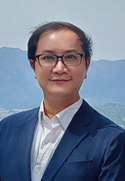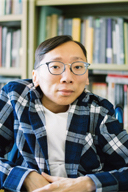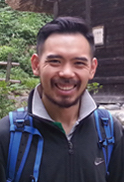通識教育模範教學獎2020
時間: 5:00-5:30pm
地點: 香港中文大學鄭裕彤樓203室
本年度榮獲提名的老師有七位。教務會通識教育委員會議決頒發「通識教育模範教學獎」予雅禮中國語文研習所的李兆麟博士、哲學系的郭柏年博士,以及人類學系的鄧偉文博士。
程序李兆麟博士

Dr. Lee Siu Lun is a Senior Lecturer in the Yale-China Chinese Language Centre at the Chinese University of Hong Kong. He received his M.Phil in Linguistics at The Chinese University of Hong Kong and his doctorate degree in Applied Linguistics at the University of Leicester, United Kingdom. He is an experienced curriculum designer and administrator of Chinese language programmes at The Chinese University of Hong Kong. Dr. Lee has taught two General Education courses, namely UGED1146 Chinese Language, Culture and Language Learning and GENA1113 Student-oriented Teaching and Seminar. He is a trained linguist and has actively involved in linguistic research and pedagogical research.
Teaching is my career. I believe teaching should be able to help students’ development both professionally and personally, should be constructive to our community, and last but not least should be enjoyable.
When I teach Cantonese/Chinese as a second language, I am glad that not only I could convey linguistic knowledge to students, but also train students to use the target language appropriately and to respect a different culture. I trust that good language skills and cultural appreciation help students study and work harmoniously and effectively in an internationalized and globalized context.
My research interests include applied linguistics, Cantonese studies, Chinese linguistics, sociolinguistics, language, culture, as well as language teaching pedagogy. I trust academic research could not only contribute to the content subject, but also improve teaching methodology as well as understanding of students’ needs.

Understanding of General Education Objectives
When teaching the two General Education courses, UGED1146 Chinese Language, Culture and Language Learning and GENA1113 Student-oriented Teaching and Seminar, I enjoyed discussing with students and exchange views on particular issues. Since students are of different professional and even cultural background, for instance UGED1146 involves a mixture of international students, Mandarin-speaking students and local students, it is exciting to engage in meaningful discussion with them concerning the links and issues connecting language, culture, society, and individuals. I believe that cultural understanding and respecting people’s differences are good qualities that should be promoted in education. Indeed, cultural understanding and mutual respect are one of the major themes of UGED1146.
There are student research projects and presentations in the two General Education courses I am teaching. It is an extraordinary experience to walk with students and see them, initially develop their idea through reading famous texts and sources in related literature, then strengthen their thoughts through constructive discussions and research, and finally consolidate their ideas in a presentation and in an academic paper. I am very happy to lead students doing research of their interest, and General Education courses provide students opportunities to learn different research methodologies and apply these research skills in their study and career.

Belief about teaching and learning, understanding of education
I believe education can help students develop in three areas:
- Specific knowledge and skills which enable students to develop a specific area of interest and career and to further their study or research in a specific area and become passionate experts and professionals in an area, which can benefit the community.
- Broad intellectual perspectives which enable students to connect academic knowledge in relation to their career and personal development, to increase their curiosity in other specific areas and find out the interrelationship among different academic areas as well as professions; broad intellectual perspectives will also enable students to develop interest in issues of the ever-changing world with logical and critical mind.
- Language and communication skills that enable students to express themselves, to effectively communicate with others, to understand and appreciate their own culture as well as to respect cultures of other people.
The world that we are living in is ever changing and full of new challenges. University students are facing unexpected issues and questions at work, in personal life and in the community. The three areas are inter-related and are inevitably important for students: Students with specific knowledge could look at specific issues profoundly and can gradually develop as experts in particular field(s). Students with good language and communication skills would have more chances to develop excellent interpersonal communication and to communicate with people of other culture. Students with broad intellectual perspectives could be able to approach unanticipated issues from different angles, to collect and connect available knowledge/resources to find possible solution, as well as to understand their own personal strength and weakness. These three areas together would help students develop as experts and professionals with a wider perspective. I believe this would make university a place to cultivate students with life-wide and life-long learning capabilities. I would continue to do my best to work towards this direction.

郭柏年博士

郭柏年博士於香港中文大學哲學系完成其哲學學士、碩士及博士學位,畢業後先後於香港專上學院與中大通識教育部任教,並在2018年轉任中大哲學系高級講師。主要研究興趣為倫理學、人生哲學、非形式邏輯與社會政治哲學。通識講授科目包括GENA1113「通識學生為本教學與研討」、UGED1111「邏輯」、UGED1112「邏輯與論辯」、UGED1810「批判思考」、UGEC2858「動物與社會﹕哲學研究」、UGED2901「死亡與不朽」等等。除哲學外,興趣為電子遊戲,觀賞美劇和與家中愛猫玩耍。
我自2012年起任職大學通識教育部講師,並於2018年度轉任哲學系高級講師。於2016年初首獲通識教育模範教學獎時,我提出以「對話」作為教學理念與課程設計的重心。近年我致力於此基礎上再加上「批判定見」與「兼備理論與現實」兩個元素,使課程更符合通識教育的批判與實用的理想。以下將以UGEC2858「動物與社會﹕哲學研究」與UGED2901「死亡與不朽」兩科本人重新設計的課程為例,說明兩者的理念。

理念
「批判定見」:通識教育強調批判思考,但真正的批判思考絕不止於指出對方論據上的不足,更應持平地發掘和強化對手的論點與反駁,此為批判的態度。另一方面,批判思考的對象亦應重視,而「定見」似乎是個好的起始點。所謂「定見」,即人生中各種早已習以為常、看似理所當然的論斷。我們希望透過反省生活定見,加深對自我以至人類的理解。選擇從定見入手的原因有二: 首先,定見無處不在,影響深遠。例如在UGED2901「死亡與不朽」有論及死亡與人生意義的關係,就此普遍意見認為死亡會令人生更有意義,我在課上會鼓勵學生反省此說的不足,從而認真審視其自身對人生意義的立場。再者,定見往往是文化傳統的具體呈現,因此是理解自身價值的上佳媒介。比方說, UGEC2858「動物與社會﹕哲學研究」一課會探討人與動物的關係,其中華人傳統普遍相信人類比動物優越,為什麼呢? 因他們認為人有踐行道德的能力,而動物沒有。這種強調道德的「人禽之辨」,正是中國文化(或曰儒家)的要點之一。是以反省定見其實有助了解那些構成我們價值觀的文化底蘊。由以上論點可見,對各種定見的反思,其實無異於重新審視構成自身價值觀、人生觀以至世界觀的組成元素,以不同角度解構自我,認識自己,這些都與通識教育的理念不謀而合。
「兼備理論與現實」:通識教育強調理論與現實兼顧,旨在令同學準確分析現實生活議題,而不淪為泛泛而談;並恰當運用前沿的理論,而免於張冠李戴。因此在課程的取材上理應有相應的安排: 就理論的選材而言,標準是難度適中、配合學界最新發展與多元化; 比方說在UGED2901「死亡與不朽」的課程上,除了古希臘的死亡哲學外,也談到中國哲學關於不朽的觀點,亦會提及新近神經科學對意識與機械身體的探索,務求擴展同學的眼界。從現實層面著眼,課程應找出迎年社會相關的生活議題,才能引起同學興趣以及解惑。以UGEC2858「動物與社會﹕哲學研究」一課為例,探討的除了素食主義與動物實驗等常見的議題外,更包括導盲犬、寵物café和動物公民等新興的社會文化現象與制度問題,希望令同學能反思生活種種。

課程設計
內容和結構:UGEC2858「動物與社會﹕哲學研究」與UGED2901「死亡與不朽」兩個課程都按「跨學科背景-哲學理論-現實議題」分為三大部份,原因如下:
首先,通識課的一大目標,在於培養跨學科的觸覺與多角度思考,因此課程的首部份旨在介紹不同學科的觀點和沿革。UGEC2858「動物與社會﹕哲學研究」先從人類馴化動物的歷史談起,進而介紹社會制度與藝術和流行文化如何呈現動物的形象;UGED2901「死亡與不朽」則簡述宗教、文化、心理、社會的角度對死亡的分析,由此為同學提供跨學科的知識。其次,既然課程強調「兼備理論與現實」,是以作為哲學系的通識課,課程第二部份將集中討論相關的哲學理論。比方說,UGEC2858「動物與社會﹕哲學研究」會介紹效益主義、康德倫理學、能力進路與廢除主義等主流的學說。而UGED2901「死亡與不朽」則從柏拉圖、伊壁鳩魯等古典哲學以至近代物理主義的心靈論分析死亡的本質與好壞。然後課程的第三部份將選取一系列的現實議題與同學探討。UGEC2858「動物與社會﹕哲學研究」的現實議題包括素食主義、動物實驗、工作動物、人獸戀、寵物飼養、動物的法律地位等社會問題;UGED2901「死亡與不朽」集中討論永生的好壞、自殺與安樂死的考慮、人類滅亡是否壞事、死亡與人生意義的關係等等。最後,「批判定見」的理念亦體現於現實議題的選取之上。課程中不少題目如人獸戀,飼養寵物的道德、自殺、人類滅絕等等都是一般大眾較少談論或早已斷案的議題,討論此等問題當有助學生更能批判自身的價值觀。

活動和評核:UGEC2858「動物與社會﹕哲學研究」與UGED2901「死亡與不朽」兩個課程都加入「課堂討論+集體辯論」活動,而在中期測驗與期終論文的要求上亦會對應「兼備理論與現實」的要求:所謂「課堂討論+集體辯論」,是指每堂都設一至兩次的課堂討論時間,讓同學就特定問題分組交流。而在學期後段亦有兩次大型的集體辯論,要求學生閱讀特定議題的支持與反對文章,歸納和分析雙方的想法,再分組申述自己的立場,最後與老師和其他組別的同學集體辯論,務求令學生有機會接觸不同的想法,接受思想上的衝擊,並學習據理力爭。另一方面,期中測驗以閱讀理解和意見回應為主,旨在測試學生對不同學科理論的掌握與反思。期終論文則要求同學應用所學理論,就課程內的現實議題做資料搜集,撰寫研究論文一篇,訓練他們學以致用的能力。
結語
總括而言,以對話為骨幹,輔以「批判定見」與「兼備理論與現實」的元素,是我近年教授通識時的原則,希望藉此培養學生多元、批判與應用的能力,並加深對自我與社會的了解。

鄧偉文博士

Dr. Tang Wai Man received his PhD in Anthropology from The Chinese University of Hong Kong in 2013. His doctoral thesis is on the relationships between heroin use and transnational migration among the second and third generations of Nepalis in Hong Kong. His research interests include drugs, migration, sports and South Asian cultures. One of the General Education course that Dr. Tang taught, viz. UGEC1685 Drugs and Culture, is quite related to his research interests. He has also been teaching four other General Education courses, namely: GENA1113 Student-oriented Teaching and Seminar, UGEA1333 Multiculturalism and China, UGEC1681 Humans and Culture, and UGEC1835 Culture of Hong Kong. He is currently researching a South Asian sport, kabaddi, with the focus on two aspects: its cultural politics during the worlding process and its educative value when it is developed as a tool for intercultural education in Hong Kong.
I majored in Anthropology for my Bachelor’s degree, and my first field experience was to visit a charismatic church that Filipino domestic workers in Hong Kong attended. During the Sunday service, the congregation cried vehemently as they said their prayers. I was somewhat taken aback. Prior to my visit, I had taken the liberty of reading an ethnography titled “Maid to Order in Hong Kong” authored by Nicole Constable, through which I gained a sense of the complicated relationships between Hong Kong employers and foreign domestic workers. However, this close encounter gave me firsthand experience of their plight and I was driven to further understand their precarious situation – some of them believe that their misery is caused by their sins; therefore, absolving them at church gives them hope in their everyday life.

Ethnographers spend years to carry out fieldwork in a community and writing ethnographies to show the complexities of human life. During the time that I was a student, I became fascinated by such attempts to delineate human life. Meanwhile, I found that this endeavor can be actually enriched through experiential learning; that is, providing field experience to students and encouraging them to conduct field research in their community. This learning approach is called participatory action research (PAR), which I have included in my teaching of General Education courses.

PAR has three basic areas: knowledge, practice and research. Students first acquire the basic knowledge of a specific topic. Then, they partake in arranged fieldtrips, in which they conduct participant observation and interviews. After the fieldtrip, the students write a fieldtrip report, which synthesizes the collected field data and academic knowledge. Since the teacher arranges the field visits, some of the ethnographic field components are determined beforehand. After acquiring the necessary integrative skills for research work, the students are expected to carry out independent research, which means that they have to learn how to formulate a research question, arrange for the field visits, contact the informants, collect the field data, and write an ethnographic report.
Based on student feedback, this step-by-step approach in PAR facilitates a better understanding of some of the more abstract academic knowledge through concrete examples and increases their confidence when they carry out their own research work. From the perspective of a teacher, PAR is impactful in at least three different areas, namely knowledge, social relations, and affectional affiliation. For example, students learn through PAR on how to develop a systematic way to understand their everyday life, become more receptive to communicating with people of different cultural backgrounds, and intervene more in the affairs of their communities. In some cases, the students would even take action to address the problems that they identified in their research.

In this ever-changing world, students need to have a wide scope of knowledge, and general education attempts to fulfill this need. Yet, many imagine that this ever-changing world is only associated with high-end globalization with a focus on the development of the latest technologies and the growth of international regulatory institutions. However, marginalized encounters, like a Filipino domestic worker attending a church service, a Nepali drug user staying at a residential drug rehab center, and an African asylum seeker organizing a cultural tour in the Chungking Mansions, are also reflective of larger issues across multiple realms in Hong Kong, from the local to the global. Thus, teaching and learning should not be restricted by space; society can also be the classroom.


